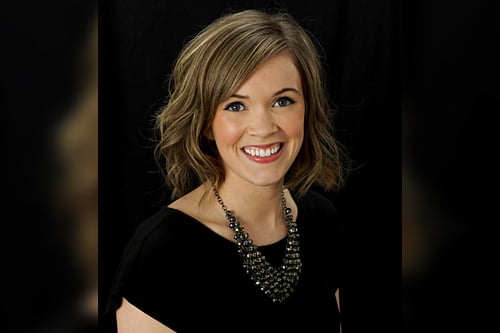Origination runs in her blood

Claire Mahoney was tired of working retail. The hours were garbage, the pay was garbage, the lifestyle was garbage. She looked at her dad’s life—he had a flexible schedule that lent itself to being able to attend her sporting events and other activities—and decided that she wanted that kind of life for herself. Whatever he did, she could do and would do in order to have that lifestyle.
Mahoney’s dad was a broker/owner at Mortgage First Corporation in Salem, Oregon. And as of May 2013, so was she.
Although certain industry lingo was commonplace at the dinner table while she was growing up, Mahoney said that she really didn’t have any idea what she was getting into, or what mortgage loan origination was all about. To her, it was just a means to an end.
“I didn’t even really know what to expect when I actually decided to jump in. More than anything, I knew that my dad and I were similar enough, so I felt like whatever he could do well, I could probably do well,” Mahoney said. “I knew I was driven enough to learn whatever I needed to do.”
Mahoney had a built-in teacher in her dad, and she learned far more by sitting in on calls and appointments with him than she did from any pre-licensing training that she received. She also has the unique advantage of being in an office where most of the other originators have been in the business for decades, and have known her for most of her life. So in addition to her dad, she had the knowledge of everyone in the company at her disposal, as well as a personal connection with other employees.
The more she learned, the more she was attracted to the customer-facing aspect of origination.
Becoming an originator in a family business—as a member of the family—has some thorns to navigate that don’t exist when people are entering origination through other avenues. For starters, Mahoney wanted the work environment to be free of nepotism.
“I told my dad, I want the crappiest computer, I want the crappiest office, I don’t want any extra privilege whatsoever, and I want to prove that I earned my place here and not just that it was handed to me,” Mahoney said. She never felt that anyone treated her differently, but was very aware of the potential issues from the beginning. She was also aware that she’s much younger than anyone else in her office, which colors her approach to origination as well.
“I learn a lot from them but I also have found that I like to do things different ways and find more efficient or more technologically advanced ways to do things, and I’ve just figured out that I have to do it my own way,” Mahoney said.
It can feel a bit like swimming against the current sometimes, but she said it’s allowed her to have her own niche and a different target customer as opposed to vying for the same business as everyone else in the office.
“I can reach millennials better than some of these people. Or even people that aren’t millennials but they'd like not to come in and hand me their tax returns; they want to do everything electronically. I’ve been able to connect with realtors based on that that probably other LOs in this office wouldn’t connect with.”
Even though she’s only been in the industry for five years, Mahoney has already had to think about shifting her focus outward, instead of remaining strictly dedicated to her own production and pipeline. Since bringing Mahoney into the picture, her dad has made more concrete plans for retirement, and she will have to step up to the plate and determine the best way to move the company forward.
That will almost certainly involve incorporating more technology, as well as looking into some more formal training protocol. Mortgage First is a small company, and she was the first person to come on board needing to be trained. But in the years to come, as more and more originators who grew with her father age out of the workplace, she will need to figure out ways to transition that work force
“What’s our long-term plan for bringing in new people, how’s that going to look? We don’t have a history of a training program, so how’s that going to look for recruiting? Things like that,” Mahoney said. "More than anything I’m looking at ways that we can make things more efficient, make things faster, make things more affordable.”



